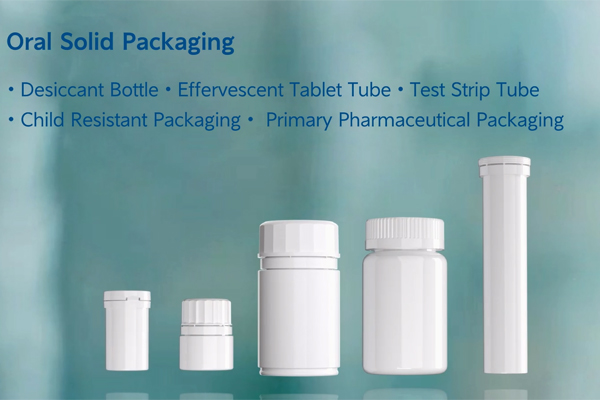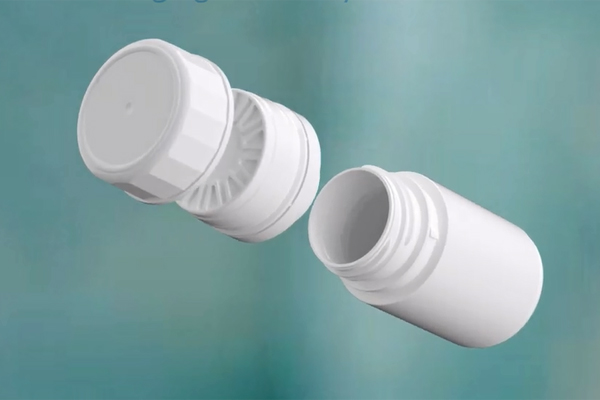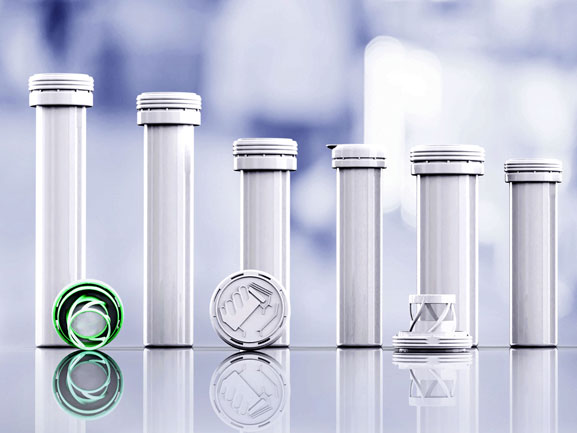In the field of pharmaceutical packaging, moisture protection is critical to drug stability and shelf life. Desiccant bottle commonly use molecular sieve and silica gel as desiccants. Although both are moisture-absorbing materials, they differ significantly in performance characteristics and application scenarios. This article provides a comparative analysis from three aspects—moisture absorption principle, performance parameters, and drug compatibility—and discusses selection strategies with practical cases.
desiccant bottle with silica gel
1. Differences in Moisture Absorption Mechanism
Molecular sieve is a synthetically produced porous aluminosilicate crystal with uniform pore sizes (commonly 3Å or 4Å). It adsorbs water molecules of specific sizes based on molecular polarity. Silica gel, primarily composed of silicon dioxide, relies on physical adsorption through irregular pores (20–200Å) to trap water molecules. This structural difference gives molecular sieve an advantage in low-humidity environments, while silica gel absorbs moisture more rapidly under high humidity.
2. Performance Parameter Comparison
Moisture Capacity: At 20% relative humidity (25°C), molecular sieve can absorb up to 22% of its weight in water, significantly outperforming silica gel (10–15%). However, at humidity levels above 50%, silica gel has a faster initial absorption rate.
Thermal Stability: Molecular sieve withstands temperatures up to 650°C and maintains stable performance after high-temperature regeneration. Silica gel is prone to structural collapse above 200°C.
Chemical Inertness: Silica gel may release trace amounts of siloxane when exposed to organic solvents, posing a risk to certain sensitive drugs (e.g., biologics). Molecular sieve presents no such concern.
Cost Consideration: Silica gel is about 1/3 to 1/2 the price of molecular sieve, making it more suitable for cost-sensitive products.
50ml desiccant bottle with CRC
3. Drug Compatibility Analysis
Preferred Applications for Molecular Sieve
Antibiotics (e.g., Amoxicillin capsules): Long-term moisture protection (shelf life ≥ 3 years) is required. Molecular sieve’s low-humidity adsorption helps maintain RH inside the bottle below 10%.
Enteric-coated formulations (e.g., Omeprazole): Sensitive to trace acidic substances. Molecular sieve’s pH-neutral properties offer greater safety.
Suitable Applications for Silica Gel
Effervescent tablets (e.g., Vitamin C effervescent tablets): Rapid absorption of residual moisture from processing is needed. Silica gel’s high initial absorption rate helps prevent caking.
Chinese medicine granules: Packaging often occurs in environments with humidity exceeding 60%. Silica gel can quickly reduce local humidity.
Pharmaceutical companies must balance drug characteristics and cost:
High-value, highly moisture-sensitive drugs (e.g., monoclonal antibody lyophilized powders) are recommended to use molecular sieve.
Conventional solid preparations can use silica gel. A dual-layer desiccant system (outer silica gel + inner molecular sieve) may be employed to balance cost and performance.
It is important to note that the 2020 edition of the Chinese Pharmacopoeia requires desiccants to pass dissolution testing. Compatibility validation should be conducted during selection.
With ongoing advancements in desiccant bottle technology, molecular sieve/silica gel composites and intelligent humidity indicators are increasingly used. However, the core selection logic remains based on precise matching between material properties and drug requirements. Rational choice of desiccant systems can reduce the risk of drug deterioration and ensure patient medication safety.



没有评论:
发表评论